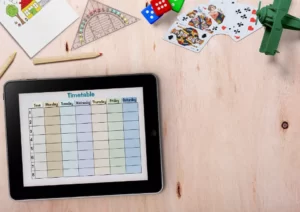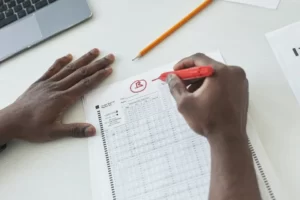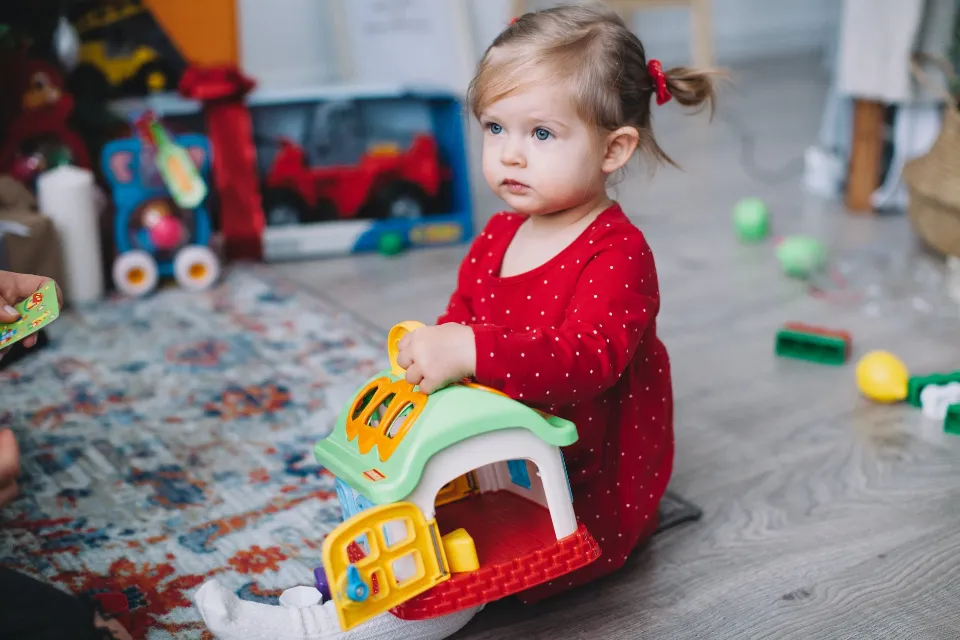
What Role Play Time Has in a Preschool Classroom?
Learn why play time has an important role in preschool and what benefits it can bring to children.
Preschool is more than just the sandbox these days. Preschool also gets harder as elementary school gets harder. In order to be ready for elementary school, preschoolers are expected to learn a number of skills.
While academics in and of themselves are not bad, they aren’t the only thing a 4-year-old’s life should be focused on. This young age needs plenty of playtime for a variety of reasons. Here is why:
What Role Play Time Has in a Preschool Classroom?
Your child will be exposed to an abundance of educational materials in a high-quality preschool, putting them ahead of their classmates before kindergarten even starts. Yet, many benefits are a direct result of playtime in preschool.
Kids who are accustomed to interacting with others when they start kindergarten, for instance, will be less anxious about things like group activities and recess. They also have better communication skills, plus so much more. Here are some Effective Preschool Classroom Rules to Keep Your Classroom Flowing Smoothly.
Even though it may seem like a lot of fun, playtime is much more than that. These are some preschool playtime benefits.
Play Time at Preschool Provides Smooth Transitions
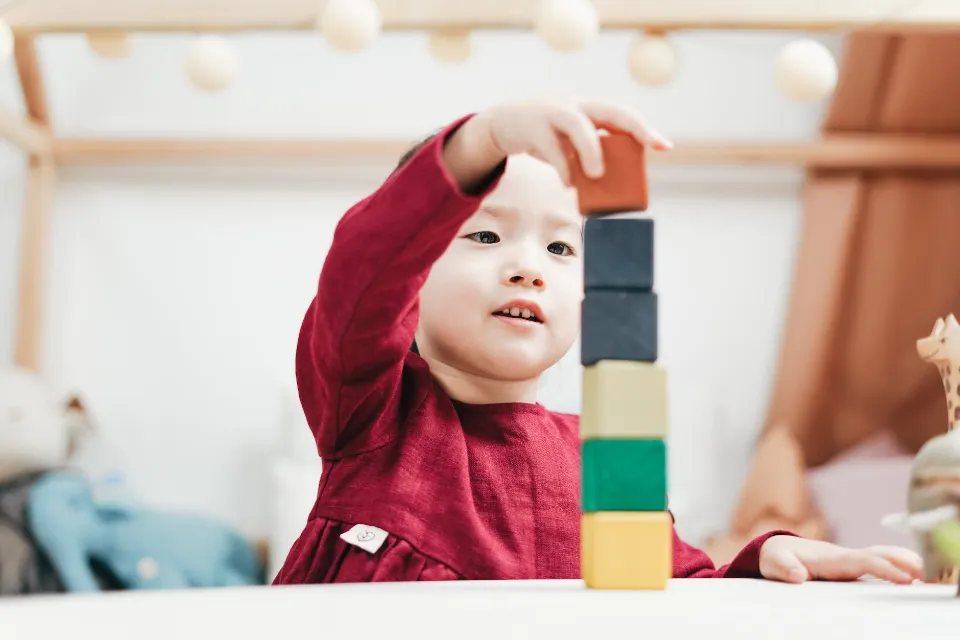
Being four years old is difficult. Children at this age are powerless over their lives, aware of the things they cannot have, and desperate for independence while also needing care. At this age, starting a new preschool can be terrifying, but playtime acts as a bridge to help children cope. A child can feel safe and at ease while playing because it is something they are familiar with.
Playtime is that safe place where a child feels stability during other life transitions, such as the birth of a new sibling, a change in the hours that mom or dad work, the illness of a family member, or even a vacation. It offers a means by which a child can make sense of everything.
Not Everything is Learned through Preschool Academics
Indeed, teaching reading, writing, and math to young children is important. Fortunately, there are several different ways to learn these skills. A preschool-aged child will benefit from sitting down to work on letters, numbers, and other subjects, but the same child can learn academic concepts while playing make-believe games that require language skills and wordplay.
An opportunity to develop observational skills that are useful for scientific knowledge is provided by playing outside. Learning engineering principles through a block construction. Don’t overlook the value of social skills, which can be developed through unstructured play.
Preschool Children’s Bodies Need Time to Catch Up
It’s perfectly normal for some preschoolers who are 4 years old to have difficulty holding a pencil still while sitting still. For active bodies that haven’t fully developed all of their fine motor skills (and just want to wiggle), doing all learning through traditional methods like worksheets at desks, memorization of facts, and more won’t work.
Children naturally acquire these vital fine motor skills when they are allowed to move in accordance with how their bodies are designed to move. In addition, they are happier and in a better position to learn from everything that is happening at preschool.
The Benefits of Play Time in Preschool
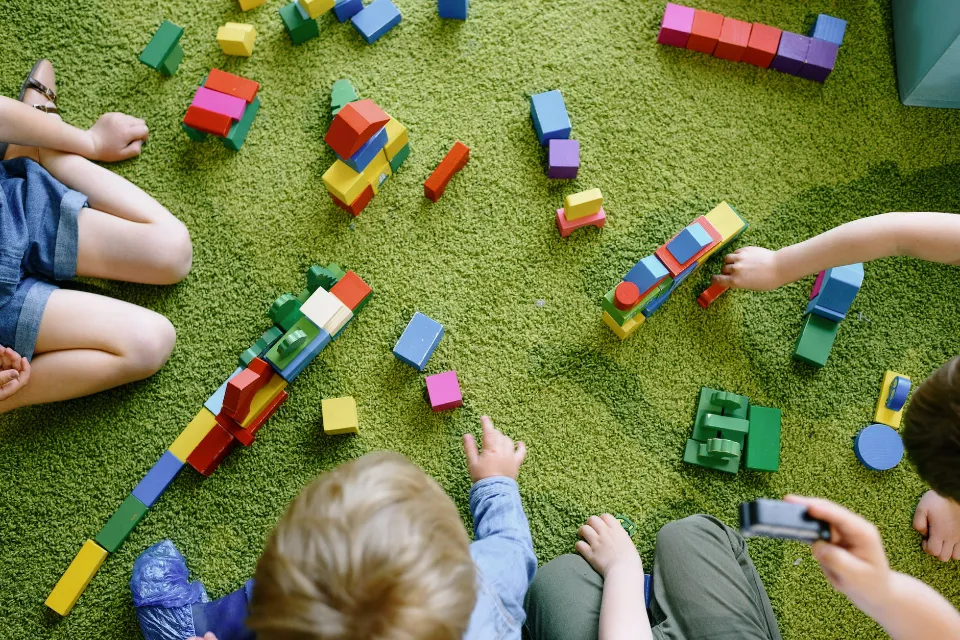
Children learn skills through play that they will use throughout their academic careers.
Physical
Play is a great way to develop your gross and fine motor skills. If kids feel safe and supported while playing outside, they’ll push themselves to overcome new obstacles and develop their motor skills.
Children can practice using their hands and fingers by handling small objects to develop fine motor skills. This practice helps kids develop the strength and coordination needed for writing skills, which in turn helps them develop their fine motor skills.
“When you’re a preschooler or toddler, your attention comes out in a different way,” explains Pizzolongo. “Your body should be engaged in as many activities as you can to maximize the effectiveness of your attention. So children learning to play where they’re physically engaged with materials and interacting with each other would work best.”
Language
Through collaborative play, kids develop their language skills. Their success depends on their ability and patience in explaining themselves. In order for others to understand, teachers will often repeat what children are saying. Additionally, they impart vocabulary related to the items the kids are eager to handle.
While playing alongside other kids, students may talk to themselves before starting to repeat what they hear or begin to converse with one another. By the time a child is four years old, this evolves into back-and-forth play communication that gets more sophisticated.
Children will now set rules, have specific roles, express their interests or objections, and chatter about funny situations that occur in the course of play.
Self-concept
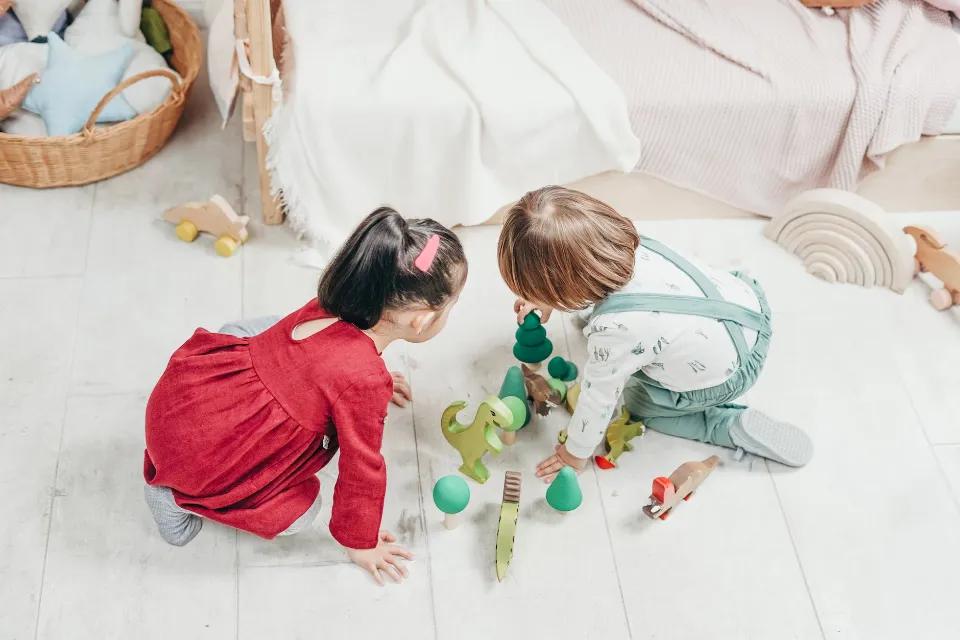
Play builds a strong sense of self-confidence. It takes a lot of effort for a preschooler to try a particular trick on a play structure or construct something out of blocks. Teachers acknowledge these occasions by describing what they see and giving the preschooler another chance to take in their accomplishments.
All kids can benefit from play’s therapeutic qualities. For instance, a play scenario can help children understand that a parent is leaving to go to work and will return for pick-up time.
Social Development
Young children ages 4 and 5 have trouble listening, haggling, and compromising. Working with others helps children grow an awareness of the differences in people around them, even though they are still egocentric at this age and unable to think beyond their own needs.
These experiences in preschool provide a foundation for learning how to solve problems and communicate with peers. Children who naturally want to take charge but need to learn impulse control can develop positive leadership skills through play.
Types of Play in Preschool
Children’s play can be divided into categories, but the types of play often overlap.
- Dramatic — Fantasy-focused play that involves dressing up, playing characters, emulating toys as real people, inventing imaginary worlds, and pretending to be adults.
- Manipulative — Holding and handling small toys often used to build objects but also found in puzzles, characters, beads, etc.
- Physical — In sports involving bikes, balls, jump ropes, hoops, play structures, etc., the entire body is used.
- Creative — utilizing art supplies like paint, clay, markers, pencils, glue, etc. The play takes place in the process of using the materials, not in the end product.
Conclusion: Benefits of Preschool Play
Social skills will advance if your child has regular access to play with other children. Kids who play at preschool are exposed to a lot of social interactions and are given the opportunity to evolve and grow socially.
Ask about their approach to play when you tour potential preschools. Preschoolers require playtime, prepared areas for exploration, and responsive teachers to support their academic development.

